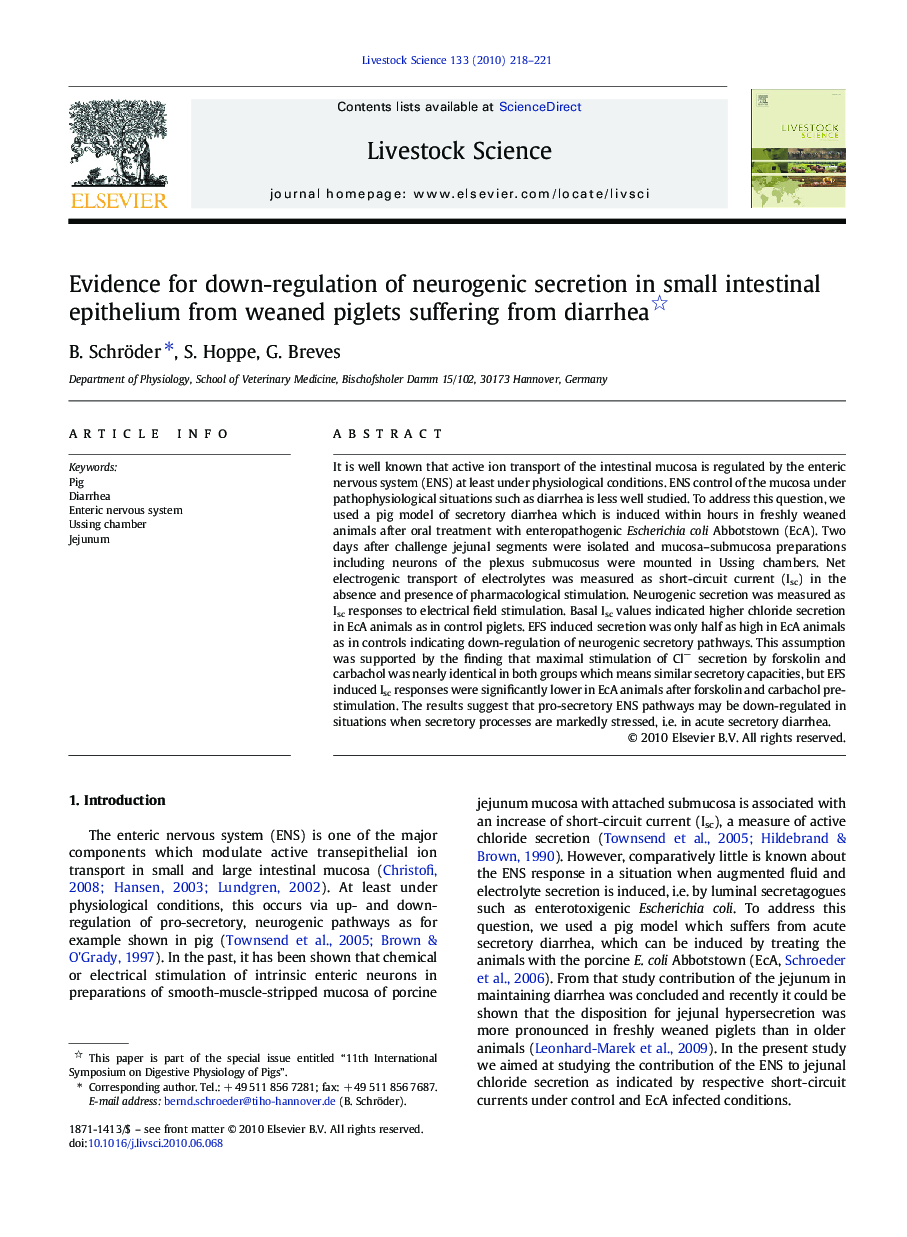| Article ID | Journal | Published Year | Pages | File Type |
|---|---|---|---|---|
| 2447731 | Livestock Science | 2010 | 4 Pages |
It is well known that active ion transport of the intestinal mucosa is regulated by the enteric nervous system (ENS) at least under physiological conditions. ENS control of the mucosa under pathophysiological situations such as diarrhea is less well studied. To address this question, we used a pig model of secretory diarrhea which is induced within hours in freshly weaned animals after oral treatment with enteropathogenic Escherichia coli Abbotstown (EcA). Two days after challenge jejunal segments were isolated and mucosa–submucosa preparations including neurons of the plexus submucosus were mounted in Ussing chambers. Net electrogenic transport of electrolytes was measured as short-circuit current (Isc) in the absence and presence of pharmacological stimulation. Neurogenic secretion was measured as Isc responses to electrical field stimulation. Basal Isc values indicated higher chloride secretion in EcA animals as in control piglets. EFS induced secretion was only half as high in EcA animals as in controls indicating down-regulation of neurogenic secretory pathways. This assumption was supported by the finding that maximal stimulation of Cl− secretion by forskolin and carbachol was nearly identical in both groups which means similar secretory capacities, but EFS induced Isc responses were significantly lower in EcA animals after forskolin and carbachol pre-stimulation. The results suggest that pro-secretory ENS pathways may be down-regulated in situations when secretory processes are markedly stressed, i.e. in acute secretory diarrhea.
